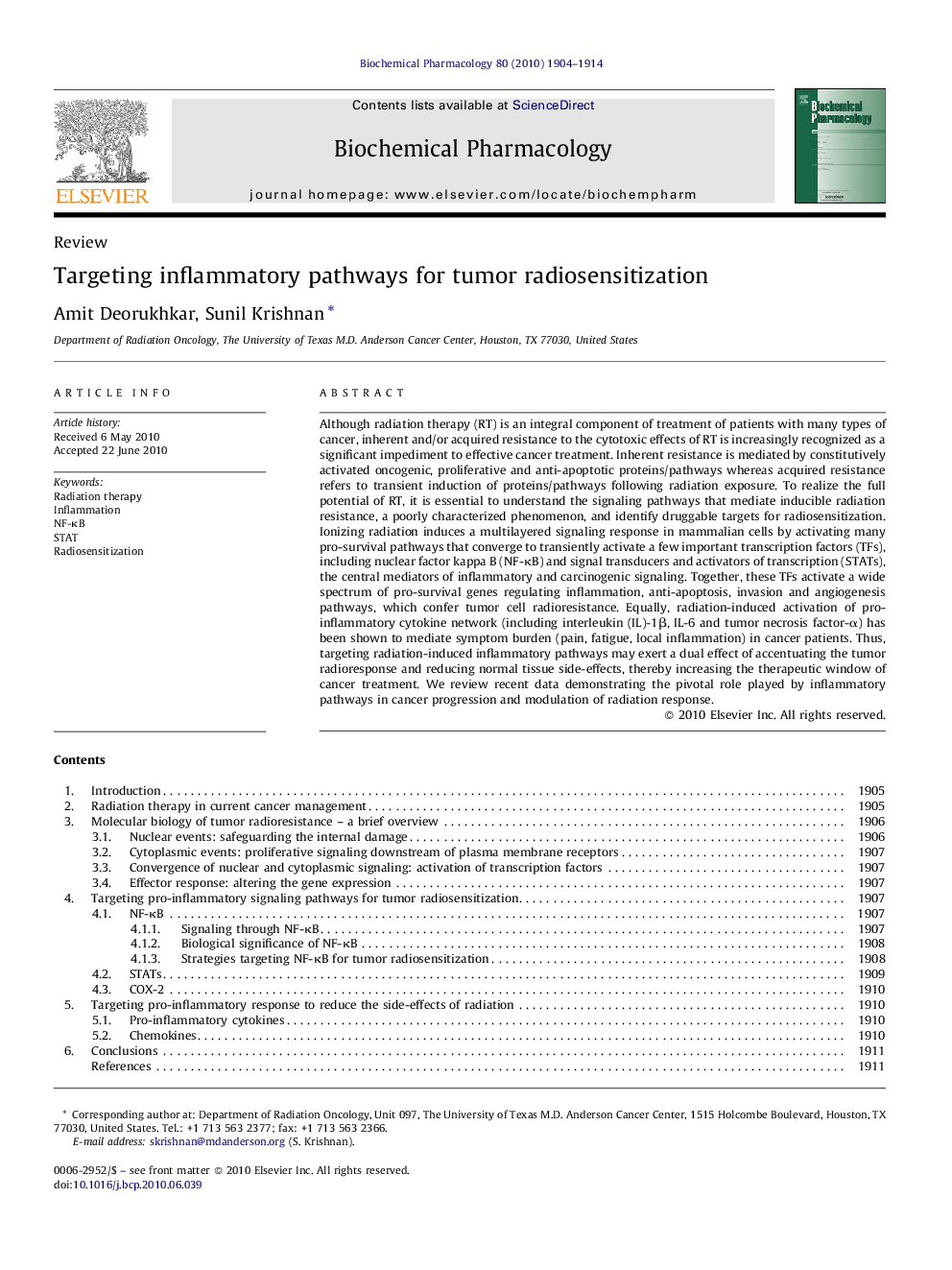| Article ID | Journal | Published Year | Pages | File Type |
|---|---|---|---|---|
| 2513253 | Biochemical Pharmacology | 2010 | 11 Pages |
Although radiation therapy (RT) is an integral component of treatment of patients with many types of cancer, inherent and/or acquired resistance to the cytotoxic effects of RT is increasingly recognized as a significant impediment to effective cancer treatment. Inherent resistance is mediated by constitutively activated oncogenic, proliferative and anti-apoptotic proteins/pathways whereas acquired resistance refers to transient induction of proteins/pathways following radiation exposure. To realize the full potential of RT, it is essential to understand the signaling pathways that mediate inducible radiation resistance, a poorly characterized phenomenon, and identify druggable targets for radiosensitization. Ionizing radiation induces a multilayered signaling response in mammalian cells by activating many pro-survival pathways that converge to transiently activate a few important transcription factors (TFs), including nuclear factor kappa B (NF-κB) and signal transducers and activators of transcription (STATs), the central mediators of inflammatory and carcinogenic signaling. Together, these TFs activate a wide spectrum of pro-survival genes regulating inflammation, anti-apoptosis, invasion and angiogenesis pathways, which confer tumor cell radioresistance. Equally, radiation-induced activation of pro-inflammatory cytokine network (including interleukin (IL)-1β, IL-6 and tumor necrosis factor-α) has been shown to mediate symptom burden (pain, fatigue, local inflammation) in cancer patients. Thus, targeting radiation-induced inflammatory pathways may exert a dual effect of accentuating the tumor radioresponse and reducing normal tissue side-effects, thereby increasing the therapeutic window of cancer treatment. We review recent data demonstrating the pivotal role played by inflammatory pathways in cancer progression and modulation of radiation response.
Graphical abstractFigure optionsDownload full-size imageDownload as PowerPoint slide
